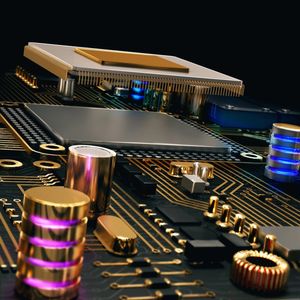Financial News
More News
View More
AI Demand Is Coming—Is Microchip Technology Ready?
Today 10:13 EST
Why Investors Have Flocked to 2 Unorthodox ETFs This Month
Today 9:31 EST
Rivian’s Chart Says Go, But Some Analysts Still Say No
November 08, 2025
e.l.f. Sell-Off Is a Good Time to Buy, According to Analysts
November 08, 2025
T-Mobile Is The Most Oversold Mega-Cap Stock—Time to Buy?
November 08, 2025
Recent Quotes
View More
Stock Quote API & Stock News API supplied by www.cloudquote.io
Quotes delayed at least 20 minutes.
By accessing this page, you agree to the Privacy Policy and Terms Of Service.
Quotes delayed at least 20 minutes.
By accessing this page, you agree to the Privacy Policy and Terms Of Service.
© 2025 FinancialContent. All rights reserved.








